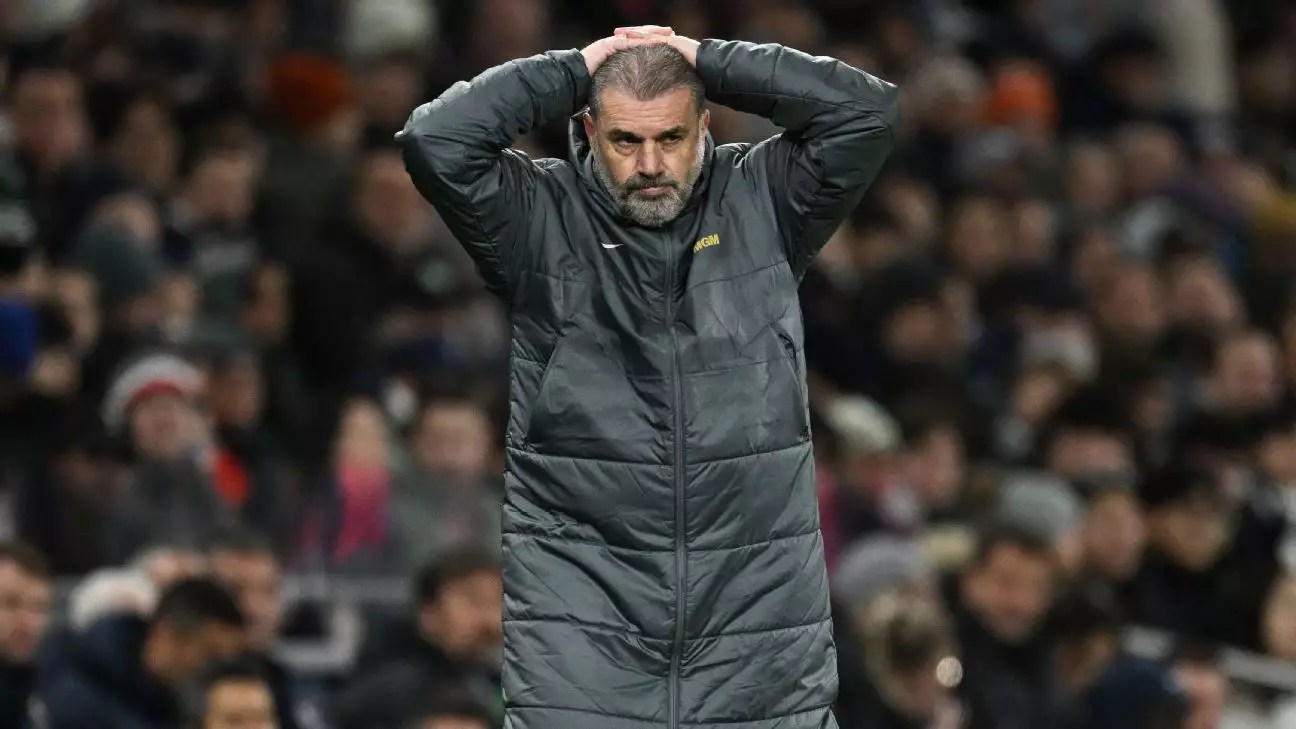The sound of boos echoed around the Tottenham Hotspur Stadium last Sunday as fans expressed their discontent following a 4-3 defeat to Chelsea. After a promising start where Tottenham raced to a 2-0 lead within the first 11 minutes, notably through goals from Dominic Solanke and Dejan Kulusevski, the game swiftly spiraled into a distressing chapter for Ange Postecoglou’s side. Chelsea’s resilience shone through, showcasing a skillful comeback that not only tested the Spurs defense but also dismantled any semblance of hope that had been built early in the match.
The devastating loss serves as a stark reminder of the challenges Tottenham faces this season. With seven league defeats already recorded, the team’s performance has left supporters feeling anxious. This bleak run has left Tottenham languishing in the 11th position, a far cry from where they aspire to be, especially in a league that demands consistent results. It raises the question of whether the playing squad supports Postecoglou’s attacking philosophy or if the mounting pressure is beginning to weigh on their performance.
The Roadblocks to Success
In discussing the aftermath of the Chelsea match, Postecoglou highlighted a critical aspect of his strategy: the team’s ongoing struggle due to injuries. Cristian Romero’s departure due to a quad injury early in the match, coupled with Brennan Johnson falling ill, illustrates how thin the squad’s resources have become. Micky van de Ven’s limited participation due to his hamstring issue further exacerbates the ongoing crisis at the club. This unfortunate situation prevents Postecoglou from rotating the squad as needed, compelling players to wear themselves thin, ultimately leading to diminished performances.
In coping with the current lineup constraints, Postecoglou acknowledged that his players are giving it their all under strenuous conditions. However, the fact that he cannot offer necessary rest raises concerns. It seems inevitable that fatigue will seep into their gameplay, weakening tactical execution. The manager’s comments suggest an awareness of the psychological toll these consecutive defeats can exert not only on players but also on team morale.
Postecoglou’s philosophy emphasizes a proactive approach to tackling adversity, but with increasing pressure both from within and outside the club, his resolve will be put to the test. He has stated that there remains “plenty to play for” before the January transfer window, indicating a belief that fortune may soon turn for the better. The remaining fixtures leading up to the new year will be vital in shaping the trajectory of Tottenham’s season, but the question remains: can they recapture the spark that characterized their early games?
Moreover, the media scrutiny surrounding the manager is palpable. After Thursday’s disappointing 1-0 defeat against Bournemouth, the mounting discontent among the Spurs faithful escalated, leading Postecoglou to engage with disgruntled fans directly. His willingness to confront the fallout from these performances reveals a commendable level of accountability, but it also amplifies the stakes. Can he maintain credibility with a fanbase that seems increasingly despondent after every setback?
Another layer of complexity in Tottenham’s journey this season lies within the officiating controversies that plagued their recent matches. Postecoglou was vocal about the efficacy of VAR, questioning the competency of officiating after Anthony Taylor’s controversial decision to dismiss a potentially punishing tackle by Chelsea’s Moisés Caicedo. VAR appears to stand as a double-edged sword: on one hand, it was instituted to ensure fairness, yet it seems to generate more confusion than clarity within the game today.
Postecoglou’s critique touches on an important issue in modern football: the hesitancy of referees to take definitive action, exacerbated by a fear of VAR scrutiny. The complexity of decision-making in real-time games, when compounded with technology that ought to simplify processes, leaves players and clubs caught in a state of uncertainty. This violation of trust in officiating competency could also affect player performances, as they might hesitate to challenge their instincts, a crucial element of competitive football.
Looking Ahead: The Path Forward
Although the current state of affairs looks grim, there remains an opportunity for rejuvenation and growth within the Tottenham squad. Postecoglou’s insistence on a collective belief in their vision may be the lifeline they need to rise from the depths of despair. Successful navigation through the challenges posed by injuries, squad fatigue, and refereeing inconsistencies will undoubtedly sculpt the identity of Spurs this season.
For Tottenham, the remaining fixtures are not just about securing points; they’re a chance to redefine their trajectory and reaffirm the club’s commitment to attacking football. The determination to pivot from their current misfortunes may prove critical, as each match becomes a testament to the strength of character and tactical adaptability that could propel them back into contention for European places.


Leave a Reply